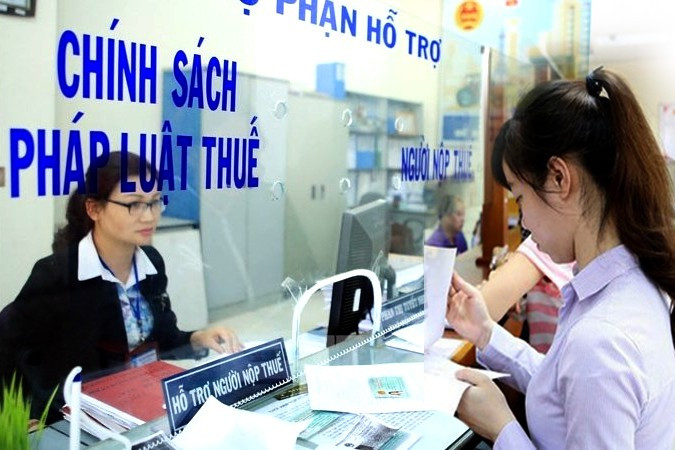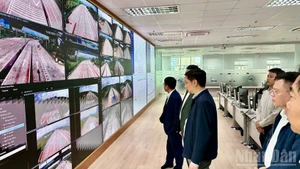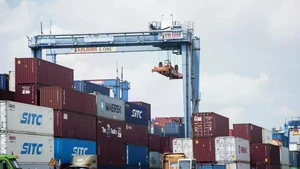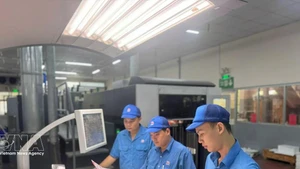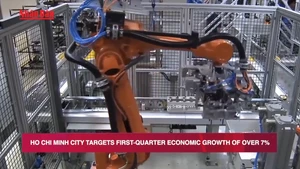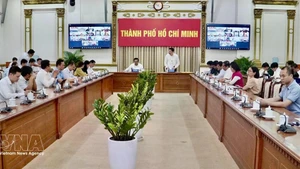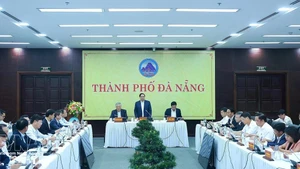The government has set a target of reducing the time required to complete administrative procedures by at least 30% and eliminating at least 30% of unnecessary business investment conditions.
At a workshop held earlier this week by the Tax Department to gather feedback on proposals to streamline and simplify tax administrative procedures, various concrete solutions were introduced, demonstrating a proactive, determined and coordinated spirit of action.
According to a government resolution issued on March 26, 2025, ministries, sectors and localities must review and simplify business regulations, cut costs and shorten the time needed to process administrative procedures for citizens and enterprises. Tax procedure reform, in particular, is deemed urgent due to its high frequency of use and direct impact on production and business activities.
Currently, the tax administration system comprises 219 procedures across different levels. Of these, 134 procedures (equivalent to 61.2%) are now provided as fully online public services. Additionally, 105 procedures (48% of the total) have been integrated into the National Public Service Portal.
For frequently used procedures such as tax registration, declaration, payment, and refunds, the rate of digital implementation exceeds 99%. The application of information technology has enabled the tax sector to offer multiple methods for conducting administrative procedures, including in-person, postal, online, and via specialised electronic applications, thereby catering to the diverse needs of taxpayers.
In 2022, the tax sector received 22.8 million dossiers. By 2024, this figure had risen to 25.5 million, reflecting the growing administrative demands of both individuals and businesses. However, thanks to accelerated digital transformation, the proportion of submissions made online surged to 87.9% in 2024.
During the same period, the number of dossiers submitted in person or by post dropped from 5.3 million in 2022 to just 3 million in 2024. This not only highlights the tax sector’s efforts in administrative reform but also reflects a positive shift in taxpayer behaviour from traditional methods to digital engagement.
Amid ongoing restructuring of the state administrative apparatus towards streamlining, professionalism, and effectiveness, the tax sector has identified administrative reform as one of its key political priorities, which must be implemented consistently and decisively.
Speaking at the workshop, Dang Ngoc Minh, Deputy Director of the Tax Department, emphasised: “Administrative reform is not only an inevitable requirement but also an urgent necessity in practice. It fosters a favourable investment and business environment and supports economic recovery and development.”
According to Minh, based on the Government’s and Ministry of Finance’s general reform plans, the Tax Department has issued a plan to review, simplify and reduce tax administrative procedures for 2025-2026, focusing on eight key task groups. Among them, top priorities include the complete digitisation of tax procedures, standardisation of forms, streamlined processing workflows, use of shared data, and implementation of one-time declarations.
Additionally, the tax authorities will enhance public and business engagement through feedback mechanisms and satisfaction surveys to refine procedures that are inappropriate or burdensome.
Under the government’s roadmap, 2025 is a pivotal milestone when ministries and agencies must reduce and simplify at least 30% of unnecessary business investment conditions and cut 30% of administrative procedures’ time and compliance costs.
By 2026, even higher goals are set: a 50% reduction in compliance time and costs compared to 2024; 100% of reporting regimes to be conducted electronically; and 100% of eligible administrative procedures to be provided as fully online public services. These are ambitious but meaningful goals, critical for improving the business environment and boosting the economy’s competitiveness.
At the workshop, many participants emphasised that tax reform must be substantive, clearly phased, and closely aligned with the actual needs of businesses. Some delegates suggested that the tax sector enhance data integration with systems from the judiciary, police, and banking sectors to optimise information usage and reduce redundant declarations for individuals and businesses.
Deputy Director Dang Ngoc Minh affirmed that the Tax Department would fully consider the feedback received. It will continue to review and comprehensively assess current procedures and, based on that, propose amendments, supplements, replacements, or removals of outdated or burdensome regulations that hinder individuals and businesses.
